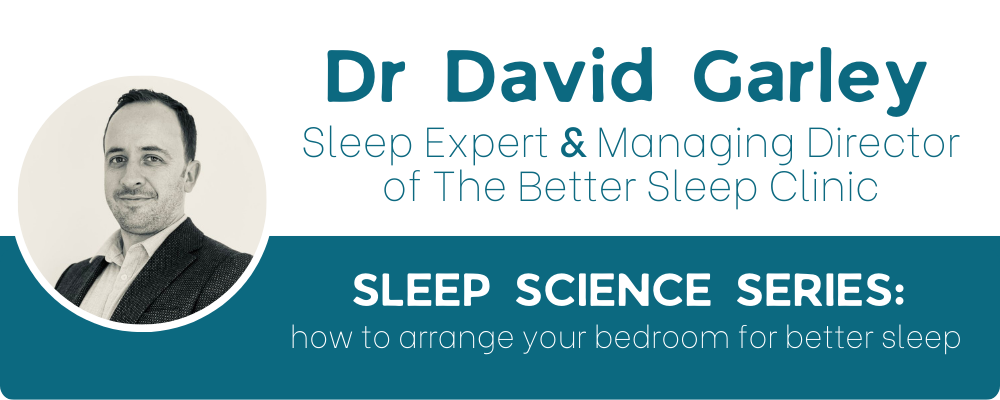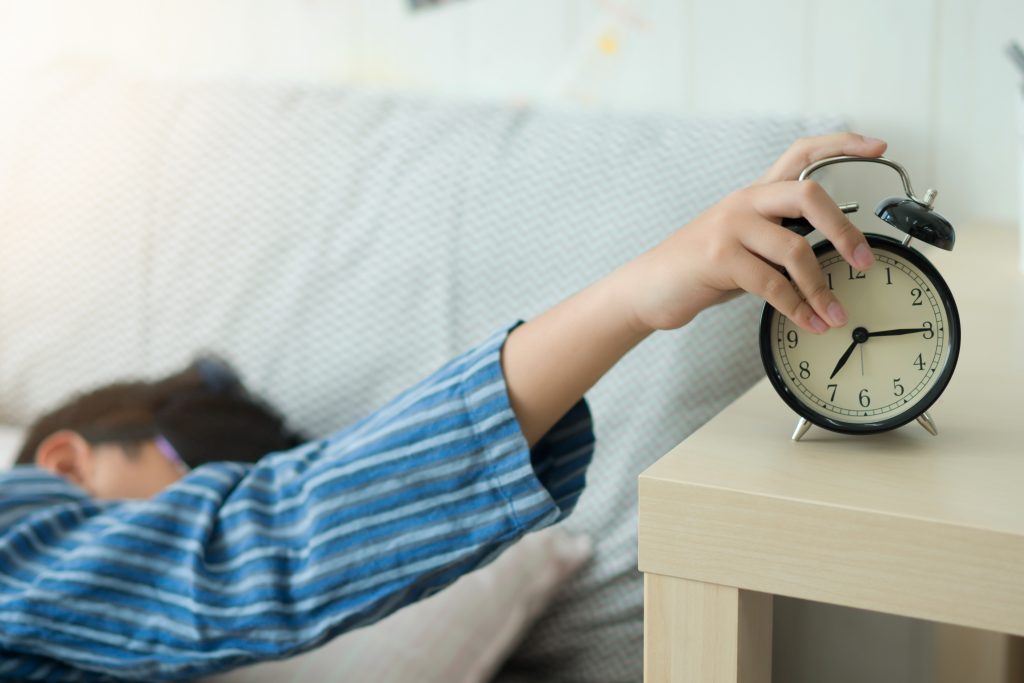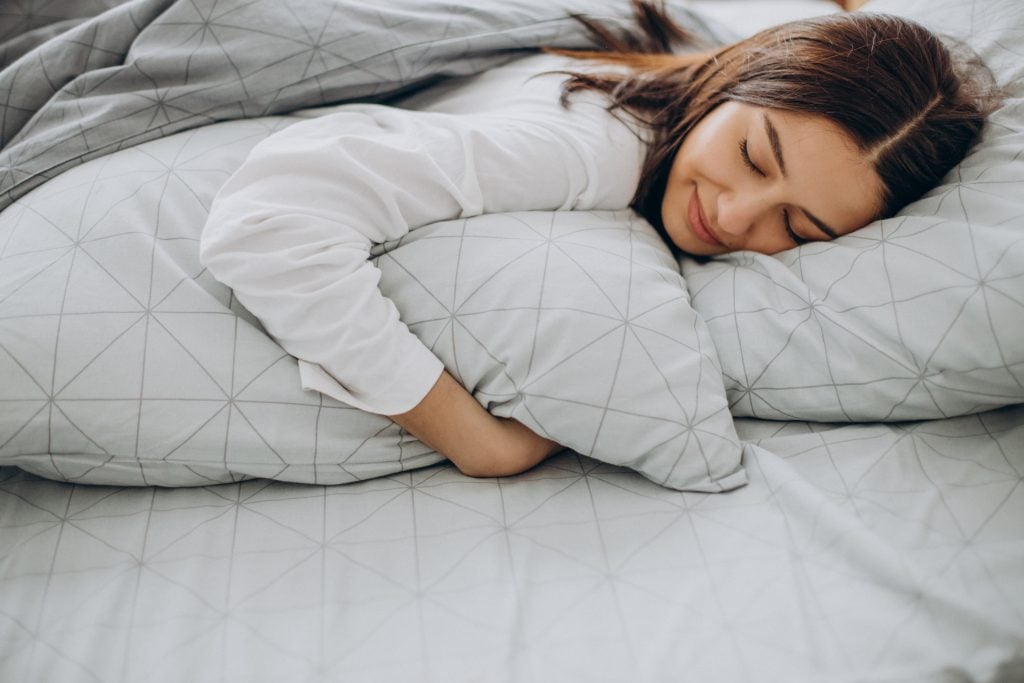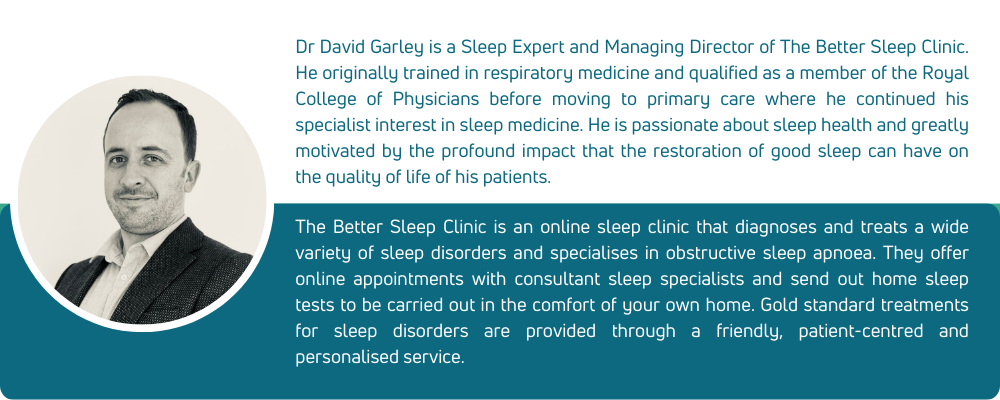
Achieving a good standard of sleep is often referred to as ‘sleep hygiene’. These routines and practices put your mind and body into the right state for sleep and make the sleeping environment the best possible place for a great night’s rest.
The bedroom features many roles. As well as being the place where you rest your head, it is also an extremely personal room and often reflects a great deal about the people who sleep there. Effective sleep hygiene involves arranging your bedroom to balance these dual roles – expressing your personality and tastes while still producing an environment that allows deep and effective sleep.
A modern room rarely achieves complete darkness due to the multitude of electrical chargers scattered about or the rays of street lights that shine between two curtains where they don’t-quite-meet. Yet light is one of the greatest stimulants for the wake phase of your circadian rhythm (which is the system that controls the wake and sleep phases of your body), and even if it doesn’t wake you, it can reduce the quality of your sleep. With this in mind, ensure any electrical chargers or other devices that offset light are out of the bedroom or at least well hidden.
Another common problem is when sunrise occurs several hours before your wake-up time. If your curtains are ineffective, you can miss 2-3 hours of quality sleep every morning. An excellent solution to this problem is the belt-and-braces approach of fitting a blackout blind into the window recess and using the curtains on top of this. After all, an additional two hours of sleep every morning can make a significant difference.
Clocks are useful, and they help us get up at the same time each morning – which is essential when strengthening our circadian rhythm. However, a visible clock means if you wake in the night, you are very likely to clock-watch. This can be a constant reminder that you are awake when you should be asleep – which can be extremely frustrating and make falling back asleep even more difficult. It is often better to set your alarm before facing your clock or phone the other way and placing it out of reach.

One of the biggest reasons people cannot fall asleep is when haphazard thoughts are chasing themselves around in their heads. An untidy room can reinforce this system of disorganised thoughts. Conversely, a tidy room can encourage an organised and structured mind, where your thoughts go to bed at the same time as you do.
We spend a third of our lives sleeping; for the average person, this is around 30 years. In other words, four months per year are spent asleep in bed. However you want to look at it, this is a considerable amount of time. In addition, sleep has an enormous impact on our health and wellbeing, both on a day-to-day and long-term basis.
We all have different mattress requirements – such as increased back support or a mattress designed with side sleepers in mind. Therefore, having the right mattress for your body type can significantly improve your sleep quantity and quality. You should also ensure you’ve invested in comfortable bedding that allows you to maintain a suitable temperature, as feeling too hot can disrupt the body’s transition into sleep.

Having your pets on your bed when you’re sleeping can be great – you can feel like part of the pack. However, dogs and cats have very different sleeping habits from humans; they often sleep for shorter periods and then wake up in the night and cause a disturbance. Even when they are asleep, they can move around a lot. If you’re struggling with your sleep, it might be an idea to cuddle with your pets on the sofa in the evening and ensure they don’t follow you to your bedroom when you turn in for the night.
The last way in which your bedroom can help enhance your night’s rest is by strengthening the association of your bed. Ideally, when you get into bed, your body should associate this so strongly with sleep that you soon start to feel sleepy and nod off.
To help this process, try and only use your bed for sleep and avoid lying there to watch films or relax during the day. If you can, use a separate room for these activities or if this is not possible, see if you can fit a comfortable chair in your bedroom to provide an alternative place to sit and relax.
Some of these changes can feel big, but it is worth investing in, given the impact of sleep on your day-to-day wellbeing and physical and mental health. This should be done with the other aspects of sleep hygiene, such as scheduling and preparation for sleep.
